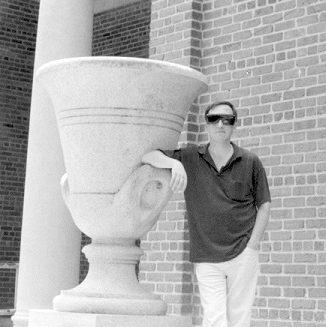By Scott Ross
For the past two days, I have been listening to Quartet Records’ meticulous reconstruction of Miklós Rózsa’s exquisite score for the Billy Wilder/I.A.L. Diamond masterwork The Private Life of Sherlock Holmes in, if not exactly a state of rage, at least fits of reasonably manageable pique.
A note on the Quartet website explains, to a large degree, the reason for my fury: The company’s producers and engineers, it tells us, “spent almost three years searching for the best possible sources, but the original masters are, unfortunately, forever lost […] We have used three different monaural music-only stems from the MGM vaults for this release — none of which was in ideal condition.”
This is, sadly, an old story, all too often replicated. It is an especially cruel irony that, while the loss of priceless soundtrack masters is not unheard of within the vaults of the major Hollywood studios, this deplorable state of affairs holds true with much more depressing regularity on movies produced outside the system — in those very places where the filmmakers and their collaborators had more freedom than anywhere else. Time after depressing time, we who love film scores are told that the soundtrack for X movie, the cherished LPs of which we’ve worn to hockey pucks over the years, is simply gone.
For older studio scores, the major problem is often that effects and music (and, occasionally, some dialogue) were stored on the same tracks. Nothing to be done about that… at least for now; who knows what digital magician of the future may arrive to perform some as-yet unknown feat of prestidigitation that will ameliorate that issue? Fortunately, later scores were isolated, often with their stereo components intact, or their composers kept master tapes in their own collections, so many of the glories of the 1950s, ’60s and ’70s can come to us more or less in full, sometimes with astounding aural freshness (Kritzerland’s release of the Les Baxter Black Sunday is a good example.)
In the case of an entity such as United Artists, however, home-from-home for so many gifted screenwriters, directors, actors and composers during that time, the elements were sometimes scattered to the four winds when not destroyed outright. (Often, the LP masters, which can differ markedly from what’s heard in the movies, are all that remains.) Varèse Sarabande just barely caught Elmer Bernstein’s magnificent Hawaii in time, after nearly giving up hope, and Quartet recently performed a miracle resuscitation on Burt Bacharach’s Casino Royale. Jose Luis Crespo has done a remarkable job with The Private Life of Sherlock Holmes, and deserves the praise and thanks of so many who love Rózsa, and revere this movie, and its score. But the facts behind this release are intolerable. The London studio where the score was recorded in 1970 has since been demolished. Well, fair enough. These things happen. But much of its holdings were destroyed in the process. And that is damn near unforgivable. It’s very much akin to Warner Bros. in the ’60s quite literally bulldozing decades’ worth of its animation department’s irreplaceable history just to make more room for its publicity department.
Wilder and Diamond envisioned, and shot, Holmes as a three-hour “roadshow” presentation, with four distinct segments. By the time the picture was edited the Mirisch Brothers of U.A., leery of the shellacking Hollywood studios had been taking on so many big-budget flops, demanded Wilder cut the picture by an hour. Not that it mattered; the movie, a comic/melancholic exercise of rare beauty and rue, died anyway. Of the two trimmed episodes, one is extant only without sound while the other exists solely as soundtrack, the filmed footage having disappeared decades ago. If what exists were not, like Welles’ Magnificent Ambersons and Stroheim’s Greed, so exceptional, it might not hurt so much to know that the possibility of a true restoration is, in all likelihood, nothing more than a pretty but ultimately foolish dream. And so, the loss of Rózsa’s achingly beautiful score in its optimal presentation somehow just feels like the perfect capper to the entire, doomed project.
Wilder asked Rózsa to base the score on his alternately plaintive and exhilarating Violin Concerto, cannily equating both its moods and its primary instrument with Holmes. The result is one of the finest scores, not merely of the composer’s own impressive oeuvre, but in the annals of movie scoring. It should be said that Crespo & Co. have done wizard’s work, given what they had to work with, and that their sheer determination to present The Private Life of Sherlock Holmes in anything like Rózsa original earns them a special seat in Paradise.
Still. The losses to music history, and to its future, are incalculable. So, if you’ll forgive me for it, and even if you won’t… I’m still angry.
Text copyright 2013 by Scott Ross
Post-Script, January 2014
If you didn’t order this one fast, I’m afraid it’s already too late; as with so many limited edition soundtrack releases, The Private Life of Sherlock Holmes is already sold out.

